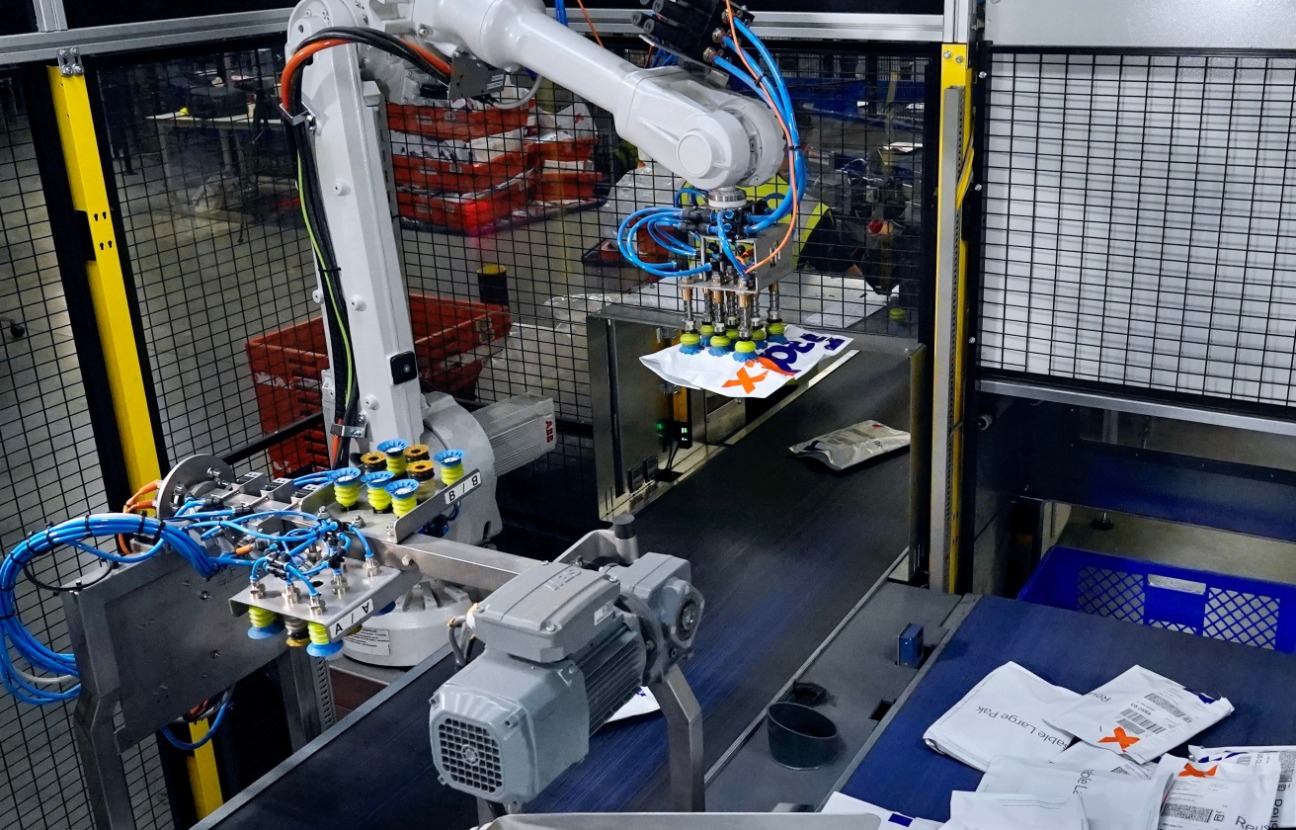FedEx Deploys First AI Sorting Robot in Europe
Federal Express Corporation, the world’s largest express transportation company, has taken another step in digitizing its European operations with the launch of an AI-powered sorting robot at its air network hub in Cologne, Germany. This marks the first deployment of its kind within the European FedEx network and underlines the company’s commitment to building a smarter, more automated logistics infrastructure.
The new robotic system, developed by Hellebrekers B.V., is part of a broader wave of technological innovation at FedEx and within the logistics industry. Installed in a protective cage on the small package sort line, the robotic arm handles incoming shipments by automating the in-feeding process. It specializes in sorting documents and small parcels weighing up to 4 kilograms, processing up to 1,000 items per hour and managing around 90 destinations simultaneously.
“AI-supported technologies like this help us manage shipments more effectively, enhance customer experience, and boost our competitive edge as ecommerce continues to drive growth in the market,” said Boris Stoffer, managing director network operations Germany at FedEx. “These technologies are also supporting our employees by reducing physical strain by taking over repetitive, high-volume tasks.”
Located in North Rhine-Westphalia, the Cologne hub is FedEx’s largest air network facility in Germany, one of seven such locations across the country. It employs over 900 team members and plays a critical role in European operations, particularly for international express shipments.
“This robotic in-feeding system is proof of our commitment to innovation,” said Georgiana Constantin, manager planning & engineering innovation & properties design at FedEx. “Delivering best-in-class service is our ambition, driven by a passion for innovation that puts our customers first.”
Driving FedEx’s Digital Transformation in Europe
FedEx’s Cologne automation project is part of a larger digital transformation strategy across Europe, where the company continues to invest in AI, robotics, and data-driven technologies to improve operational efficiency and customer service.
In recent years, FedEx has integrated automated parcel sortation, real-time tracking, predictive analytics, and AI-powered customer service tools across its European infrastructure. The company has also piloted robotic arms and AGVs (automated guided vehicles) in warehouses and is increasingly leveraging machine learning to optimize hub operations and route planning.
This European initiative reflects the momentum seen in FedEx’s global innovation efforts. The company began testing robotic arms at its Memphis SuperHub in 2020 and has since deployed robotic sorting systems at its Guangzhou e-commerce hub in South China and at its Singapore regional hub. In the United States, FedEx currently uses robotic sortation and package identification systems at 17 facilities, including hubs in New York, Las Vegas, and Ohio.
Part of a Bigger Industry Shift
FedEx’s AI-powered sorting robot aligns with a broader industry trend toward automation in logistics, driven by labor shortages, rising e-commerce demand, and the need for faster, more efficient fulfillment. According to Statista, the global warehouse automation market is expected to exceed USD 51 billion by 2030.
From last-mile drone deliveries to autonomous warehouse systems, logistics providers are rapidly adopting smart technologies to future-proof their supply chains and reduce operational bottlenecks. FedEx’s latest deployment in Cologne represents not just a milestone for the company, but also a glimpse into the next generation of parcel logistics in Europe.
